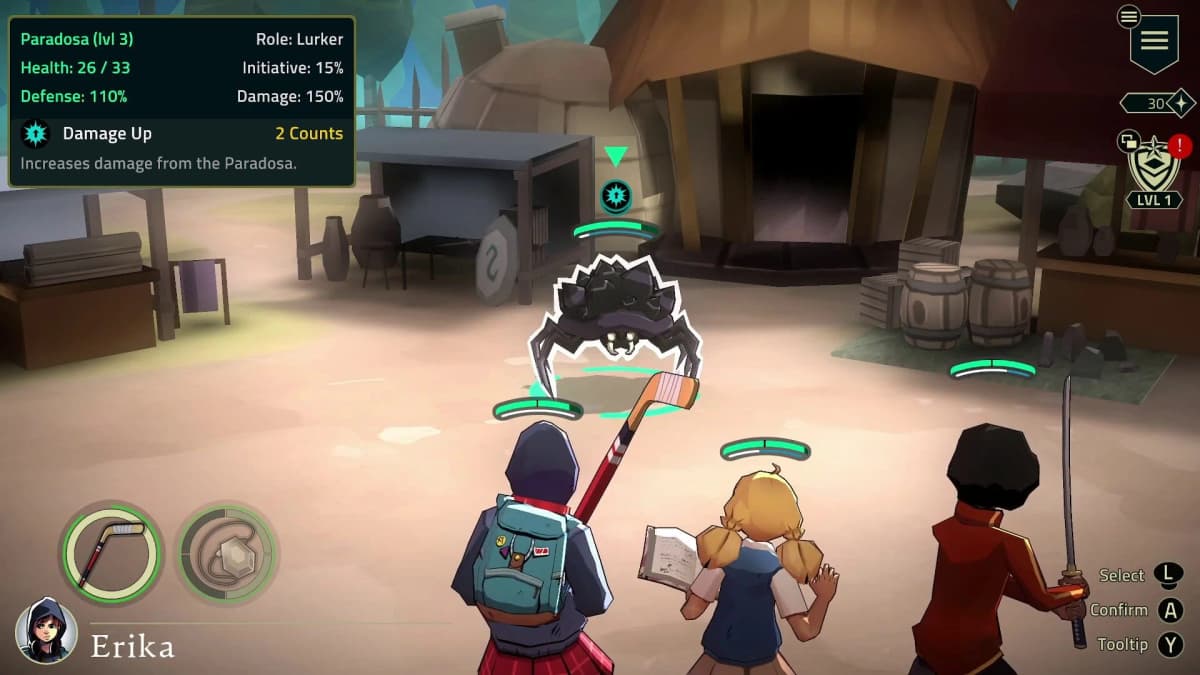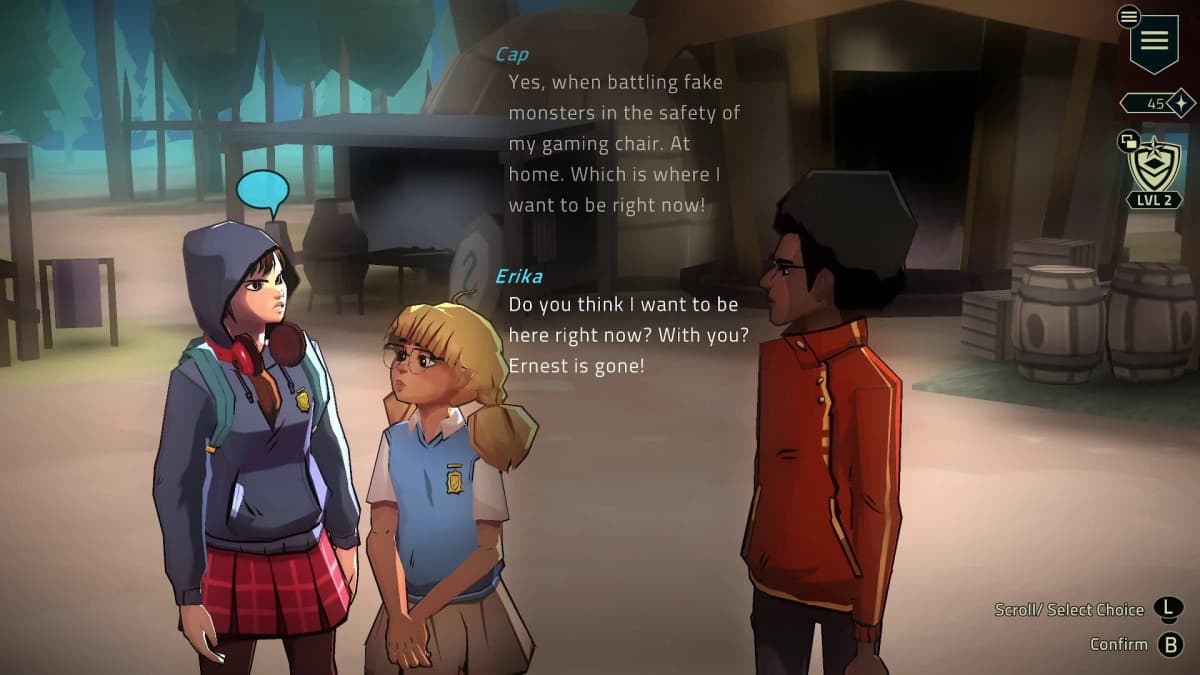
Game intel
Grifford Academy
Grifford Academy is a story-rich, coming-of-age RPG set in a mystical book realm where your decisions shape the personalities of the characters. Engage in stra…
Every year, a fresh batch of RPGs promises to “put players at the heart of the adventure,” yet more often than not, they railroad you through predetermined beats. That’s why Grifford Academy, the new Early Access release from indie developer LandShark Games, stands out. This “lite academia” RPG not only sets you loose in a breezy magical school environment, but it also asks you to help shape its future. As someone who’s watched countless small studios vanish under the weight of their own ambitions, I’m intrigued—and cautiously optimistic—that this one might stick the landing.
Grifford Academy’s biggest sell is its promise of real-time collaboration with players. From the moment the game hit Steam Early Access, LandShark opened a public roadmap listing features like Recipe Hunting, pet companions, and a roguelite challenge mode. Players can vote on priorities, suggest tweaks, and even report balance issues directly on the studio’s Steam discussion board or official Discord. This level of transparency is rare in the genre—most devs lock their plans behind NDA-strewn closed betas or vague timelines. Here, every proposed feature has a progress bar, and the team regularly publishes update notes.
That said, open development carries risks. Crowd input can fragment a vision, leading to feature bloat or endless debates over minor mechanics. There’s also the question of iteration speed—if LandShark can’t ship meaningful updates every few weeks, community goodwill may dry up. Still, early signs are promising: a bug fix patch landed within ten days of reports, and a public poll on rearranging skill trees yielded a dev response outlining tentative design changes.
Grifford Academy leans into its schoolhouse backdrop without drowning in soap-opera levels of angst. You play as a new transfer student navigating the titular institution’s corridors, forging friendships with classmates like the studious Erika, the prankster Viva, and the reserved Cap. Instead of Fire Emblem–style political intrigue or Persona’s intense emotional arcs, this game strikes for a lighter tone: think unseen library eavesdropping, potion-brewing mishaps, and wanderlust-fueled mystery rather than life-or-death stakes.
Worldbuilding relies on bite-sized lore entries and environmental storytelling. A locked trophy case in the main hall hints at long-forgotten heroics, while scattered chalk drawings foreshadow developing plot threads. If you’ve played Ikenfell, you’ll recognize the appeal—university magic with an indie sensibility—but Grifford avoids that game’s occasional pacing hiccups by breaking story beats into daily events. Each in-game week brings new side quests, club activities, and chance conversations that subtly alter character relationships.
Combat in Grifford Academy unfolds on compact, grid-based arenas where positioning and turn order matter—but you won’t find the granular statistics or wall-of-numbers UI common to hardcore tactical RPGs. Abilities are color-coded and icon-driven; hovering over a skill reveals a plain-English description of its effects, from healing allies with a soothing breeze to summoning spectral quills that pierce through multiple enemies. Basic status conditions—burn, freeze, daze—get tooltips explaining how long they last and how they can be cured, making the system approachable for newcomers.

Character progression sidesteps min-max mania by capping ability points and routing new spells through a class-neutral skill grid. If Erika learns a defensive ward early, you can later slot it into Viva’s repertoire, encouraging flexible party builds. The result is a middle ground between the “analysis paralysis” of grid-heavy games and the “button-mash simplicity” of casual battle systems. Each fight takes roughly five to eight turns—enough to plan ahead without feeling like a slog—while still rewarding tactical creativity.
One standout feature under development is environmental hazards. Imagine an alchemy lab where spilled potions create acid pools that shrink your movement range, or an art studio where stray ink blots grant stealth bonuses if you hide within them. These dynamic elements, though unfinished, hint at how future updates could layer complexity without overhauling the core rules.
The current Steam roadmap breaks down upcoming features into Planned, In Progress, and Completed columns. At the top of Planned sits Recipe Hunting: a foraging minigame where you explore the grounds for rare ingredients to craft unique consumables. Right now, it’s a placeholder with a basic demonstration, but community votes will determine which resource types, minigame mechanics, and crafting bonuses make the cut.
Next up are pet companions—a fan-favorite idea with sketch art already teased by the devs. Will we get a mischievous cat that steals items from foes, or a spectral owl that reveals hidden traps? It’s too early to say. Finally, a roguelite mode aims to repurpose the same maps into procedurally generated trials, promising permadeath runs with persistent meta-progression. If delivered well, this could address replayability concerns often raised for strictly linear RPGs.

However, juggling three major features alongside balance patches and story chapters is ambitious. The key will be setting realistic deadlines and pruning ideas that don’t serve the core experience. Players should watch for updates on timing—if certain features slip past the target dates, it could foreshadow delays for the full 1.0 release in 2026.
Grifford Academy occupies a niche between two familiar poles. On one side, you have deeply strategic, high-stakes series like Fire Emblem and Disgaea, where battle outcomes hinge on dozens of modifiers and permanent character death looms. On the other, there are “cozy tactics” hits such as Triangle Strategy’s limited scope or Mario + Rabbids’ accessible skirmishes. Grifford’s approach—lighter narrative stakes, shorter skirmishes, cross-class abilities—feels designed to pull in both audiences without alienating either.
The narrative tone often recalls Persona’s social link system—week-by-week interactions affect your bond levels—but in a more playful, less overwrought key. There’s drama, yes, but it’s delivered in half-hour chapters rather than multi-hour story arcs. If you’ve ever wished Persona would trim some of its cutscenes or Fire Emblem would dial back permadeath tension, Grifford may hit that sweet spot.
Early Access always carries caveats. For one, narrative threads might stall if story updates take a back seat to feature development. Fans eager for the next chapter in the main plot could find themselves twiddling thumbs between content drops. There’s also the risk of jumbled patch notes—too many quality-of-life tweaks can muddy the roadmap, making it hard to track which features are truly in the pipeline.

Technical performance is another concern. During a recent stress test, a dozen friendly NPCs on screen caused occasional frame dips on lower-end PCs. It’s unclear if optimization is on the roadmap or will be shoehorned into balance update windows. And while community-driven design is empowering, it can slow consensus: if the forum divides over two equally popular ideas, will the devs side with whichever has the louder vocal minority, or stick to a cohesive vision?
If you’re looking for a tactical RPG that values story and character relationships as much as stat sheets, Grifford Academy is worth a closer look. The Early Access price of $14.99 (often discounted on launch) is low-risk, and you’ll get to shape key features before the official launch. Fans of Ikenfell’s magic school charm, Persona’s social systems, or streamlined tactics like Mario + Rabbids will find plenty to enjoy.
That said, if you demand a fully polished narrative or unbroken roadmap, it might be wise to wait until 1.0. But for players willing to engage in the game’s development journey—and who don’t mind the occasional placeholder text—this could be one of the most rewarding Early Access experiences of 2025.
Grifford Academy blends a breezy magic school setting with turn-based tactical combat in Steam Early Access. Its “lite academia” vibe and public roadmap let the community steer features like Recipe Hunting, pets, and a roguelite mode. While open development brings risks—scope creep, slow patches, performance hitches—the $14.99 price point and promise of regular updates make it a compelling gamble for fans of approachable, story-driven RPGs.
Get access to exclusive strategies, hidden tips, and pro-level insights that we don't share publicly.
Ultimate Gaming Strategy Guide + Weekly Pro Tips